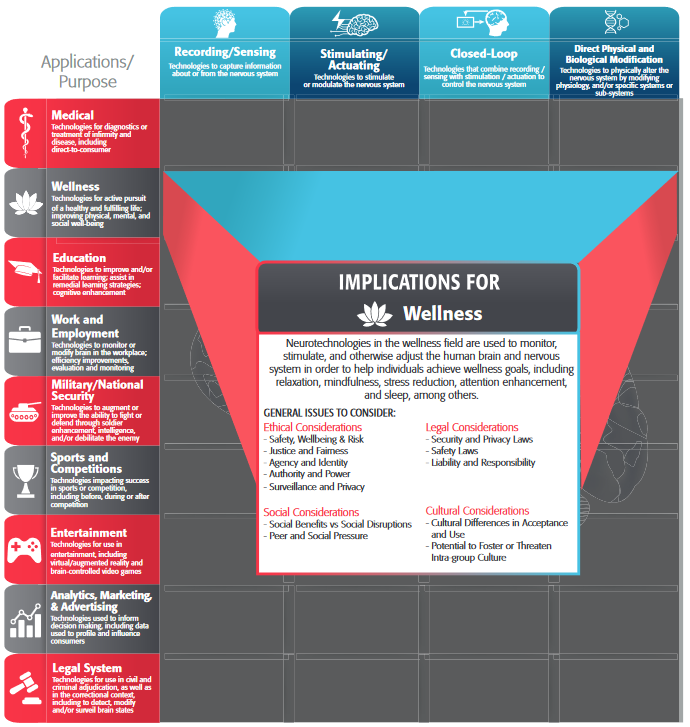Education Preamble
Neuroscience and neurotechnology have the potential to re-define the ways in which we characterize educational attainment and pursue life-long improvement. Moreover, the technological assessment and modification of brain functioning, whether temporary or permanent, can have profound implications for education.
One might envision a brain stimulation headset that improves language acquisition without any supervision, or neurofeedback goggles used during judo training, closely supervised by an instructor. In the popular imagination, neural interfaces for improving mental abilities wouldn’t necessitate any education or even any conscious effort. However, little about developmental psychology, cognitive science, or neurology supports this assumption. Novel methods of neuromodulation may show some effect by adjusting the activity of a brain region, but robust habit acquisition able to move the needle on rigorous performance testing is likely to demand practice with the cognitive task at a mental level.
Learning and education are different, but we bundle them into one entity here so that the opportunities to enhance either or both can be the focus. Careful development of neurotechnologies may improve teaching and learning, assessment, intervention, training, and performance, perhaps guided by neuroscience-derived insights into teaching pedagogy and learning readiness. The experience of learning through thinking, practicing, and testing can be supported by targeted brain assessments and modulation. Finally, at the mechanistic level, scientists are uncovering a vast realm of complex network architectures—and perhaps targets for neuromodulation—associated with cognitive functioning and mental acuity. Note, however, that strengthening a singular neurocognitive operation—no matter how important—will not guarantee learning results.
In this document, we explore the broader spectrum of brain modifications, cognitive improvements, learning performance, and educational enhancement. The highest ethical duty for a neuro-enabled world of learning and education is to anticipate and mitigate potentially adverse consequences to augmenting or restoring a person’s mental acuities, skills, and talents. Throughout, we will highlight the ethical, legal, social, and cultural implications (ELSCI) in this emerging field.


